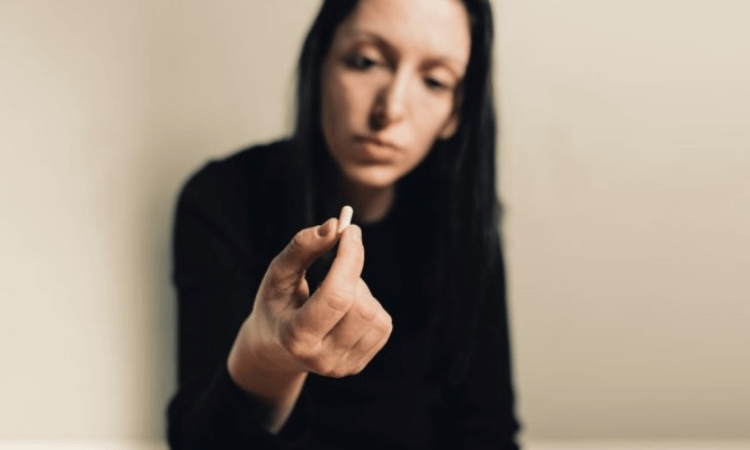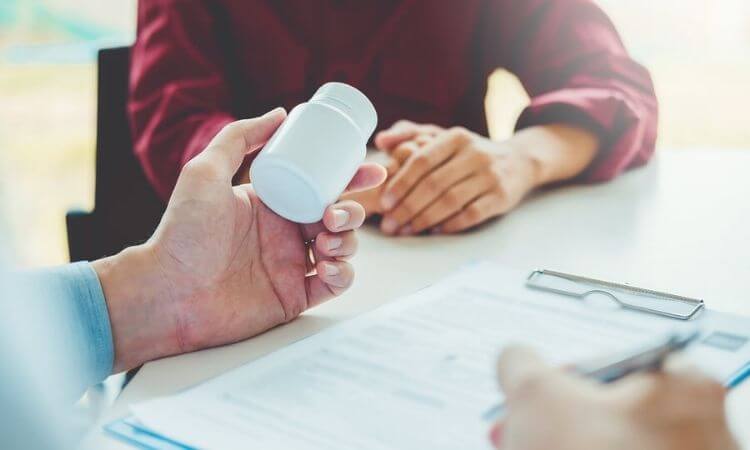Addiction is a major problem facing many Americans today. Yet the science of addiction treatment has developed significantly over the last few decades.
Many types of intervention are available now, from counseling and support groups to medication-assisted treatment.
If a loved one has been fighting a substance use disorder, there is help available today. Call our Recovery In Tune substance abuse treatment specialists today to learn more about our treatment and financial assistance programs.
How Is Addiction Defined?
Addiction is the physical or psychological reliance on substances, including drugs, prescription medication, and alcohol. Developing a dependence on behaviors such as gambling, sex, and exercise is also a form of addiction.
The pleasure center of the brain starts to become overwhelmed after experiencing the effects of drugs, alcohol, or a behavior. And that’s when addiction is formed. The brain remembers this feeling of pleasure and will constantly seek more of it.
For those with a sensitivity to drugs, alcohol, and stimulants, developing an addiction may happen more quickly. Addiction can impact everyone in a person’s life, including friends, coworkers, and family members.
Maintaining a job, taking care of relationships, and even basic hygiene can become difficult when you have an addiction. When you are ready for help, call our helpful staff at Recovery In Tune to jumpstart your recovery.

Reasons People Develop Addictions
Addiction develops when a person repeatedly takes a substance that triggers the pleasure center of the brain. To break an addiction, you must stop the constant cycle of pleasure-seeking.
Drugs and chemicals, such as nicotine, cocaine, and opioids, are found to be addictive because of physical and chemical changes to the structure of the brain.
These addictive substances bombard the brain with dopamine. This dopamine excess can easily be ten times the typical amount of dopamine in the brain.
When the flood of dopamine happens, the brain remembers the sensation and craves more. At the same time, however, the brain gets desensitized to the stimulant. Although the craving for the substance remains, a person will need even more to duplicate the feeling.
Causes of Addiction
Even though a person who is more sensitive to alcohol and drugs is most at risk of developing an addiction, other causes of drug addiction and alcoholism are possible. These reasons can include:
- Having a history of mental health issues
- A family’s history of alcohol and drug addiction
- A person’s or family’s history of prescription drug misuse
- Environmental factors such as being around drugs or alcohol
- The peer pressure faced by young people
Risk Factors for Substance Use Disorder
Anyone can be at risk for developing a substance use disorder, but especially those who face the following factors:
- A history of substance abuse in the family
- Those diagnosed with attention deficit hyperactivity disorder (ADHD)
- People who have developed post-traumatic stress disorder (PTSD)
- People living with a mental health disorder, such as depression or bipolar disorder
- People experiencing homelessness
- People who have faced abuse or trauma
At Recovery In Tune, we help people confront their past issues that have lent to addiction. Then, we develop a treatment plan to help you manage these issues with adept coping skills you learn in our programs.
Which Groups of People Experience Addiction?
While addiction can take hold of anyone’s life, some people are more susceptible to it than others. The following are statistics regarding those who are more prone to addiction:
- As of 2021, 61.2 million people aged 12 and older have used illicit drugs in the past year.
- In the past year, 13.5% of young people from 18 to 25 had both a substance use disorder and any mental illness.
- Over 41 million women in the United States suffer from both a mental disorder and a substance use disorder.
- Close to 25% of American men report binge drinking about five times a month.
Warning Signs of Addiction
Addiction becomes a cycle of repeating various actions and behaviors. These actions become a routine that can be noticeable to the people in their lives.
Addiction warning signs can alert loved ones that something is wrong. Noticing these red flags can help you support someone in seeking addiction treatment.
While many kinds of substances have different types of signs, there are standard symptoms of all types of addiction:
- Problems at school and work: Constantly being tardy or absent, a lack of interest in school or work, a decline in work performance or school grades.
- Physical health signs: Weight loss or weight gain, a lack of sleep or increased sleeping habits, a sudden lack of energy, a drop in motivation, red eyes.
- Hygiene and grooming: a sudden loss of interest in a person’s hygiene or appearance, looking disheveled.
- Changes in a person’s behavior: Someone suddenly distancing themselves from friends and family they are close to, being evasive, trying to prevent people from accessing their homes or bedroom.
- Financial difficulties: Asking for money without offering any explanation for why it is needed, discovering your personal belongings or money has been stolen.

Common Types of Addiction
Many different types of substances and behaviors can evolve into an addiction. Someone may experience a dopamine rush that leads to addiction for taking illicit or prescription drugs, alcohol, and various behaviors.
Here are the common types of addiction we treat here at Recovery In Tune.
Alcoholism and drug addiction both fall under the category of substance use disorders. Alcohol use disorder is the unmanageable drinking of alcohol with preoccupied thoughts of alcohol.
Drug use and addiction can drive a person to behave in ways that they know are destructive. Drug addiction can make someone do uncharacteristic things.
Various forms of drug addictions that can develop include:
- Cannabis, marijuana, and hashish
- Bath salts, K2, and spice
- Barbiturates such as phenobarbital
- Sedatives such as benzodiazepines, like Valium (diazepam), Xanax (alprazolam), and Ativan (lorazepam)
- “Z” drugs, including Ambien (zolpidem) and Sonata (zaleplon)
- Stimulants, like methamphetamine, cocaine, Ritalin, and Adderall
- Club/party drugs known as MDMA, Molly, and Ecstasy
- Hallucinogens, like LSD (lysergic acid diethylamide) and PCP (phencyclidine)
- Inhalants such as gasoline, glue, and paint thinner
- Opioid prescription drugs and illicit drugs: oxycodone, morphine, heroin, codeine, methadone, and fentanyl
When speaking about addiction, most people automatically assume drug or alcohol addiction. However, there are behaviors that can become addictive, as well.
While it may not be a physical substance that is consumed that causes the reward reaction, the behavior itself causes the dopamine flood.
Some of the most frequently formed addictive behaviors can include social media, gambling, internet use, sex, and eating disorders.
Recovery In Tune offers intensive treatments for all types of addiction, as well as mental health issues that happen alongside SUDs.
Long Term Effects of Addiction
When a person abuses drugs and alcohol, they may face many short-term side effects. Unfortunately, there are harmful consequences for taking substances for a long period of time.
Long-term side effects of substance abuse can include the following:
- Heart and cardiovascular problems which can consist of high blood pressure, irregular heart rates, and heart failure
- Neurological issues that can lead to anxiety, poor memory, depression, and even learning difficulties
- Health problems with the liver, such as fatty liver disease
- Damage to the pancreas
- Problems with the kidneys, which can lead to kidney failure
- Gastrointestinal issues such as ulcers, gastritis, and different types of cancers
Perhaps the greatest risk of continued alcohol or drug use is drug overdose and alcohol poisoning.
If you believe someone may have experienced alcohol or opioid overdose, it is critical that you seek medical attention immediately.
Addiction Treatment in Davie, Florida
If you or someone you love have been living with a drug or alcohol addiction, you may be looking for help.
Rest assured there are a number of effective treatment options in Davie, Florida, that can help you reach sobriety.
Here are our most relied-upon treatment programs at Recovery In Tune.
In most cases, people who enter an addiction treatment program will enter a detox period first. A person seeking sobriety will first need to get the substance out of their system.
While a person is in detox, Recovery In Tune healthcare providers will monitor their vital signs, including blood pressure and heart rate. In some circumstances, there are medications that can help with more challenging withdrawal symptoms.
People undergoing the detox process can gain support from other patients who are also in detox.
Medication-assisted treatment, or MAT, helps people cope with the withdrawal symptoms that can make recovery difficult. MAT uses a combination of medications, counseling, and behavioral therapy for a well-rounded treatment experience.
At Recovery In Tune, you may receive buprenorphine (Suboxone), methadone, or naltrexone (Vivitrol) to treat alcohol or opioid withdrawal symptoms.
Our healthcare providers will also help you develop a comprehensive treatment plan to address other aspects of your recovery.
After a patient has successfully concluded a detox program, they typically have two choices: inpatient or residential treatment programs or outpatient programs.
Inpatient treatment programs are very structured and regimented, allowing patients to get used to a schedule without facing triggers.
A daily schedule in an inpatient program will likely include multiple forms of therapy, team and confidence-building activities, regular chores, and support groups.
However, not everyone can commit to a residential treatment program for 30 days or more. That’s why Recovery In Tune exclusively offers intensive programs that are outpatient in nature.
Outpatient programs allow our patients the flexibility and support needed to recover without the overnight stay requirement. They offer the same treatments as inpatient programs, with less time required of the patient each day.
The three levels of outpatient programs we offer are:
- Partial Hospitalization Programs (PHP)
- Intensive Outpatient Programs (IOP)
- Outpatient Programs
Recovery In Tune offers both a dedicated mental health program and dual diagnosis care to treat mental health and addiction at the same time.
In most cases, a patient’s mental illness is one of the main causes of an addiction to a behavior or substance. When we treat the underlying mental health issues, we can more effectively treat the addiction.
An effective way to treat mental health conditions is through therapy. A number of therapies can treat mental health and SUD together, including:
- Cognitive Behavioral Therapy (CBT), which helps you confront negative thoughts and behaviors and replace them with healthier ones in recovery.
- Individual counseling where you speak to a therapist one-on-one to address issues that lend to your addiction.
- Group therapy where you connect with others in addiction recovery and lean on them for support while offering them encouragement and support in return.
These therapies and many more are featured in outpatient programs in our Davie treatment program.

Now is the perfect time to begin to heal!
Find Hope and Support for Addiction at Recovery In Tune
If a loved one has been struggling with an alcohol or drug addiction, understand that help is available. There are many paths to sobriety, and we can help you find the right one.
Recovery In Tune is committed to helping people achieve a long, sober life. One of our greatest concerns is your total mental and physical health and wellness while you are healing.
When you are prepared to take the first step to sobriety, contact our offices today to speak with an addiction specialist.
Addiction FAQs
Addiction is most effectively treated through a combination of counseling, psychiatry, and medical intervention. Cognitive behavioral therapy (CBT) and inpatient or outpatient treatment are successful combinations of methods.
Addiction can be overcome by treating underlying mental health conditions while concentrating on the physical changes to a person’s brain caused by substance abuse.
According to research, successfully rewiring a person’s brain after addiction can take at least 90 days of being completely free of the substance or behavior. A person’s body will undergo a withdrawal period during this time.
Addiction is life-long and cannot be cured. However, it can be managed with a combination of therapy and medical supervision.
Yes, addiction is a chronic disease. According to the National Institute on Drug Abuse (NIDA), once someone has become addicted to a substance, it can only be managed and treated.
Sources
- American Psychological Association. “Substance use, abuse, and addiction.” Retrieved from: Substance use, abuse, and addiction (apa.org) Accessed on October 14, 2024.
- Mayo Clinic. “Drug Addiction (Substance Use Disorder).” Retrieved from: Drug addiction (substance use disorder) – Symptoms and causes – Mayo Clinic Accessed on October 14,2024.
- National Institute on Drug Abuse. “Treatment and Recovery.” Retrieved from: Treatment and Recovery | National Institute on Drug Abuse (NIDA) (nih.gov) Accessed on October 14, 2024.
- Yale Medicine. “How an Addicted Brain Works.” Retrieved from: How an Addicted Brain Works > News > Yale Medicine Accessed on October 14, 2024.